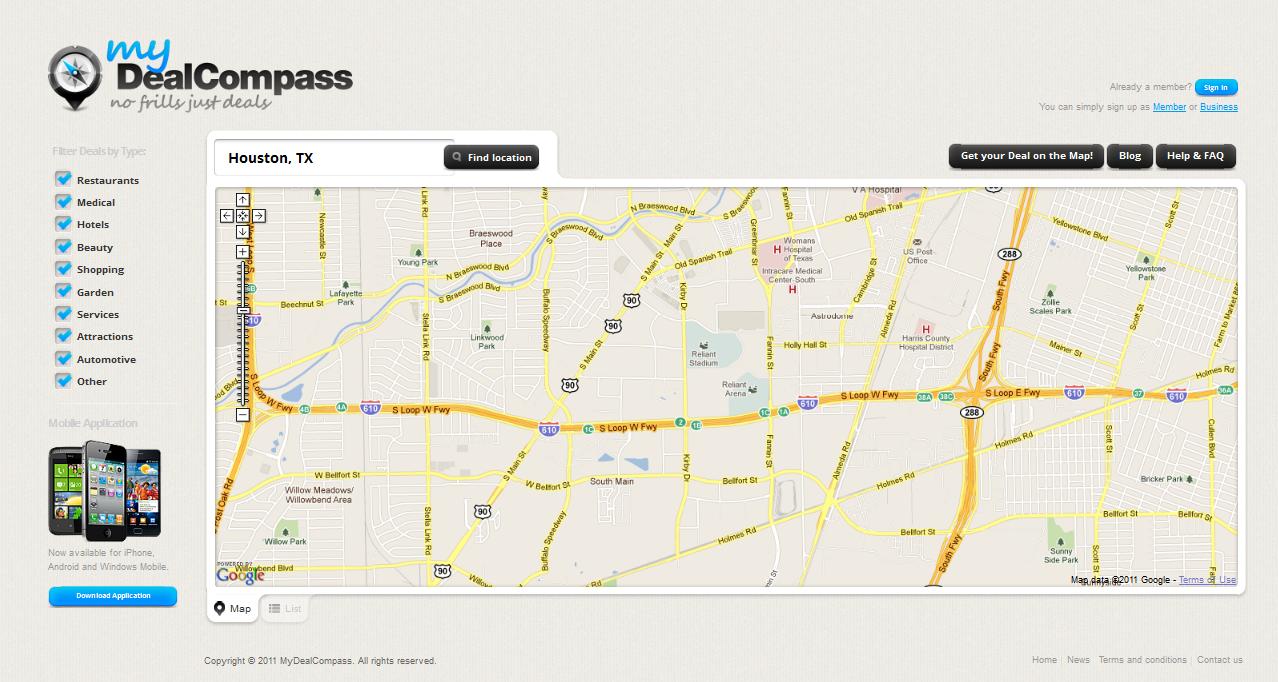A client wrote last night asking, “Is it not possible to tell Google the sitemap directly?… Can you not just tell Google the layout and have it appear appropriately?”
His site, myDealCompass, has no content to speak of on the homepage. Billed as the deal site that gives you “No frills, just deals,” myDealCompass lets registered businesses post a special offer. Consumers can then pull up the Deal Map on their phones or computers and see all the special offers in their area on that day. If they are looking for a place to have lunch, they can specify restaurants and only see placemarkers for the restaurants in their vicinity that are offering special deals — no clicking back and forth.
Since the simplicity of the thing is a major distinction between this site and other deal sites, they want to keep the page simple: just a map. The content of the map is not actually on their page, and most of the things that look like words are pictures. They have a lot of code and very little English. Search engines ignore them.
So why can’t they just inform Google and Bing that they have a map here?
First, a little info about how search engines work. They send robots, called spiders, around the web looking for new stuff. When they find new stuff, the spiders apply secret, highly complex algorithms to determine whether the site is worth indexing or not. If the website has nothing on it, or very poor quality stuff, then they don’t both indexing it. Spiders come back around again every now and then, mostly when there’s new content or new links, so it isn’t a case where opportunity knocks but once.
If a site is indexed, or the spiders consider it worth indexing, they’ll crawl around it and determine what it’s about. Then, when people search for terms the search engines have associated with your website, your site will be offered, along with other websites in the order in which they’re ranked for that phrase.
In the past, people could submit a site map and use meta keywords to tell search engines what their pages were about, and the search engines would trust them. That was a long time ago. Unscrupulous people misused these simple, logical methods of communicating with search engines, and search engines now essentially ignore what site owners tell them. Submitting your site map is useful for Google Webmaster Tools, but it won’t make search engines overlook what’s actually on your pages.
Another site that we’re working on right now has been the official site of a non-profit for almost 10 years. It was built with all the text in pictures rather than as words, something people often did in those days. Even after a decade online, most of its pages will not come up for search even for the most obvious search terms.
Like it or not, search engines will only pay attention to what’s on your page, and they’ll make their decisions on the basis of the words that are on your page. For sites like the ones we’re working with now, getting some content onto the pages is the highest priority job.


Leave a Reply